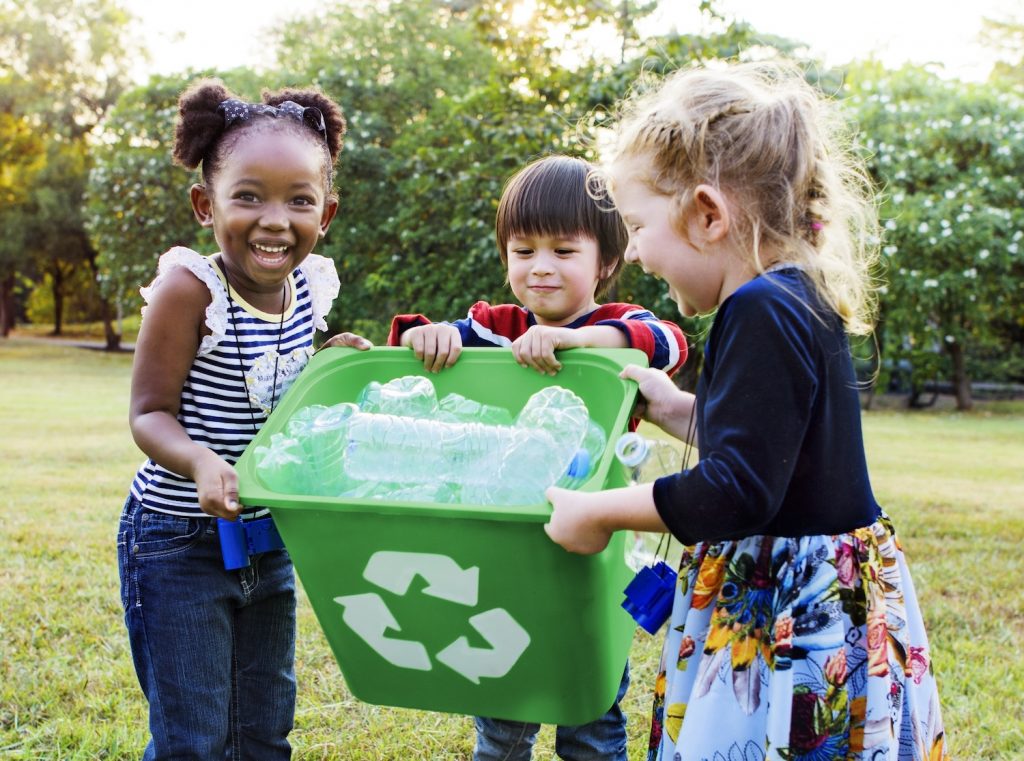Stewardship means a sense of connection to, caring about, and responsibility for each other, and the natural world around us.

How do we as parents inspire and empower our children to become environmental stewards, building hope instead of harboring “ecophobia” (afraid to do anything positive for the environment because it all seems so hopeless)? No matter how young your child/children are, they can become an engaged steward at every age and at any stage of their development.
Studies have shown that today’s children are more anxious, more distracted, and less healthy than the last generation. It may be hard to believe, yet the average child spends more than seven hours a day in front of a glowing screen and less than 20 minutes in active outdoor play! At the same time there is mounting evidence that exposure to nature while growing up reduces stress, improves physical and mental health, stimulates creativity, builds self-esteem and encourages co-operation, collaboration and self-regulation. Further studies have shown that regular exposure to nature is the single most important factor in fostering care and concern for the environment. With that in mind, here are 10 simple tips to teach environmental lessons to those children and adults too, in your life.
- Lead by example. Have you heard that a picture is worth a thousand words? Well, an action is worth millions. The same way your kids could learn an appropriate behavior can be used to develop environmental awareness.
- Take your kids outside. Learning to enjoy nature is the first step to care about it. Studies show that more outdoor activity can improve your overall health and help reduce obesity and other diseases.
- Teach children to use the appropriate receptacle for their waste: reduce, reuse, and recycle as much as you can. Little things, like packing a waste-free lunch, can provide a powerful lesson for your children. Get a favorite character reusable lunch bag, fork and spoon that your child can reuse; encourage your little one to drink water from a reusable water bottle; and buy more organic fruits for snacks.
- Give them chores, like helping you classify your recyclables. As a reward, they can save money earned by recycling to buy a cool toy.
- Work together in a garden or compost project. If you can, buy one plant for them to learn to take care of; it’s a fun way to grasp how plants need sun, water and soil. Use your senses and enjoy the flowers. Take them to a compost garden to see the worms in action, how they can decompose since science and the environment are an important part of the life cycle.
- Teach them to close the faucet while brushing and bathing. Water is precious.Turn off the water while brushing their teeth or soaping up during bath or shower time. You can use stickers as a reward for remembering to save water.
- Flip that switch! When you are out of the room, your toys don’t need the lights on. You can order a free sticker to remind you to switch them off. Better yet, make your own sticker.
- Participate in a beach cleanup. It’s does make a difference! If you live near a beach, visit a tide pool or enjoy other beach activities that help them realize the importance of keeping the ocean clean. And don’t forget, at the end of a visit to a beach or waterway, pack up and carryout all that you brought in, especially the trash!
- Give away to others the toys and clothes that you don’t use. Sharing is nice. Take your kids with you when you donate to make them aware of the people in need, while keeping more items out of the landfill.
- The same way you teach kids to respect others, you can teach them to respect nature. In your bedtime story, incorporate environmental books. Make a movie night more educational with one that teaches about the consequences of endangering our environment. You can also download a cool app (eBook’s or games) to teach little ones about environmental conservation. Remember kids learn by playing and doing!
Imagine the journey of stewardship as a pathway. Along this journey, children need certain experiences in nature and in the world around them as they grow to become confident and active stewards.
Teaching children to take care of the planet is an insurance policy for the future, and doesn’t need to cost money or be all that difficult. Simple, user-friendly resources are available for use at home and in the classroom and present sustainability as an opportunity that everyone has a stake in. It takes a village to raise a child, and takes a collective community of conscious individuals to raise the next generation of environmental stewards.If you are interested in learning more about Stratford School, or scheduling a personalized tour, visit us online at www.stratfordschools.com.























